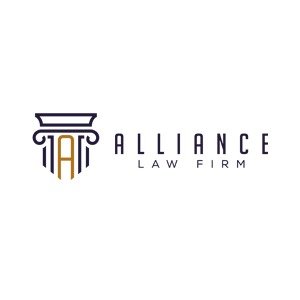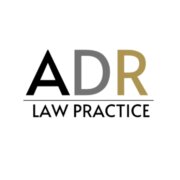About ESG Advisory & Compliance Law in Lagos, Nigeria
Environmental, Social, and Governance, commonly referred to as ESG, is a framework used by organisations to evaluate their performance and risks related to environmental protection, social responsibility, and good governance. In Lagos, Nigeria, ESG Advisory & Compliance involves ensuring that companies, financial institutions, and other entities operate in line with national and international standards relating to environmental sustainability, workplace equity, ethical governance, and corporate transparency. ESG compliance has become increasingly important due to global focus on sustainability and Nigeria’s own regulatory emphasis on responsible business conduct. Businesses in Lagos are faced with evolving requirements set by regulators, investors, and partner organisations, making professional legal guidance in ESG crucial for operational success and risk management.
Why You May Need a Lawyer
There are multiple situations where seeking legal advice in ESG Advisory & Compliance becomes necessary in Lagos. Common scenarios include:
- Understanding new or changing governmental policies on environmental protection, waste management, or carbon emissions.
- Navigating mandatory corporate social responsibility (CSR) requirements or industry-specific compliance frameworks imposed by local or federal authorities.
- Preparing for regulatory audits or responding to investigations by the Lagos State Environmental Protection Agency or similar bodies.
- Drafting or reviewing ESG-related disclosures, reports, contracts, or supply chain agreements to ensure compliance.
- Addressing allegations of non-compliance, such as environmental violations, workplace safety infractions, or governance failures.
- Guiding public and private companies through the integration of ESG policies into their operations and reporting frameworks.
- Advising on risk assessments, impact analysis, and remediation plans tailored to Nigerian laws and global standards.
A lawyer specializing in ESG can help you avoid fines, reputational damage, and liability by ensuring adherence to the applicable Nigerian and international laws.
Local Laws Overview
ESG Advisory & Compliance in Lagos is shaped by a combination of Nigerian statutes, Lagos State regulations, and international standards. Key legal areas include:
- Environmental Laws: The National Environmental Standards and Regulations Enforcement Agency (NESREA) Act, Lagos State Environmental Management and Protection Law, and sector-specific guidelines control issues like pollution, waste management, and resource usage.
- Social Responsibility: Companies and Allied Matters Act (CAMA), local labour laws, and anti-discrimination regulations play a role in ensuring fair employment practices, human rights, and community engagement.
- Governance: Requirements for board composition, transparency, anti-corruption practices, and reporting are laid out in CAMA and the Nigerian Code of Corporate Governance.
- Financial Reporting: The Financial Reporting Council of Nigeria and the Securities and Exchange Commission require listed companies to provide ESG disclosures in annual reports and sustainability declarations.
- International Standards: Lagos-based companies increasingly aspire to align with global frameworks such as the United Nations Sustainable Development Goals (SDGs) and the Global Reporting Initiative (GRI).
Compliance is mostly enforced through regular inspections, statutory disclosures, and stakeholder scrutiny, with strict penalties for non-compliance.
Frequently Asked Questions
What is ESG and why is it important for businesses in Lagos?
ESG stands for Environmental, Social, and Governance. It is a set of criteria businesses use to measure their impact on society, the environment, and how ethically they are run. In Lagos, ESG is important because it affects your reputation, ensures compliance with local laws, attracts investors, and reduces business risks.
Which laws regulate ESG compliance in Lagos, Nigeria?
ESG compliance is regulated through national laws such as the NESREA Act, Lagos State Environmental Laws, Companies and Allied Matters Act, and industry-specific regulations. International frameworks can also be relevant depending on your business sector and stakeholders.
Do all companies in Lagos need to comply with ESG standards?
While all companies should operate responsibly, compliance requirements vary depending on your business type, size, and sector. Listed and large companies are typically subject to stricter requirements, but small businesses can still be held accountable for non-compliance with basic standards.
How does ESG compliance benefit my business?
Complying with ESG standards can enhance your reputation, attract investment, open new business opportunities, improve customer trust, and shield your company from penalties or legal disputes.
What are the consequences of failing to comply with ESG regulations in Lagos?
Non-compliance can result in government fines, operational sanctions, lawsuits, loss of business licenses, reputational damage, and difficulties accessing finance or investment.
How can a legal advisor help with ESG compliance?
A legal advisor can assess your current practices, help you understand relevant laws, draft compliance documents, train your staff, prepare you for regulatory audits, and assist in resolving any disputes or investigations.
Are there industry-specific ESG requirements in Lagos?
Yes, sectors such as oil and gas, manufacturing, and finance have additional regulations for environmental safety, employee welfare, sustainability reporting, and anti-corruption practices.
How often do ESG regulations change in Nigeria?
ESG regulations evolve in response to local and global trends. Regular monitoring and consultation with legal experts help ensure you stay compliant as standards change.
What steps can I take to prepare for ESG compliance?
Start by assessing your current operations, engage a legal expert to identify gaps, develop or update policies, train your staff, and ensure that required disclosures and reporting are up to date.
Can non-Nigerian businesses operating in Lagos be affected by ESG laws?
Yes, any company operating within Lagos must follow local ESG laws and standards, regardless of ownership or country of origin.
Additional Resources
Several resources and organizations can guide you on ESG Advisory & Compliance in Lagos:
- National Environmental Standards and Regulations Enforcement Agency (NESREA)
- Lagos State Environmental Protection Agency (LASEPA)
- Corporate Affairs Commission (CAC)
- Financial Reporting Council of Nigeria (FRCN)
- Nigerian Stock Exchange (NSE) for publicly listed companies
- Professional associations such as the Nigerian Bar Association and the Chartered Institute of Environmental Practitioners
Many law firms in Lagos also offer dedicated ESG advisory services and workshops.
Next Steps
If you require legal assistance with ESG Advisory & Compliance in Lagos, consider the following steps:
- Assess your business’s current ESG practices and identify areas where you may need support or improvement.
- Gather all relevant documents, permits, and reports related to ESG compliance.
- Contact a lawyer or law firm with expertise in ESG matters within Lagos or Nigeria as a whole. You may ask for referrals from professional associations or regulatory agencies.
- Discuss your specific needs, risks, or challenges during an initial consultation to create a tailored compliance plan.
- Stay updated by attending ESG workshops, seminars, or information sessions organized by relevant agencies.
Taking early legal advice can help your business meet legal requirements, avoid costly penalties, and build a sustainable, reputable enterprise.
Lawzana helps you find the best lawyers and law firms in Lagos through a curated and pre-screened list of qualified legal professionals. Our platform offers rankings and detailed profiles of attorneys and law firms, allowing you to compare based on practice areas, including ESG Advisory & Compliance, experience, and client feedback.
Each profile includes a description of the firm's areas of practice, client reviews, team members and partners, year of establishment, spoken languages, office locations, contact information, social media presence, and any published articles or resources. Most firms on our platform speak English and are experienced in both local and international legal matters.
Get a quote from top-rated law firms in Lagos, Nigeria — quickly, securely, and without unnecessary hassle.
Disclaimer:
The information provided on this page is for general informational purposes only and does not constitute legal advice. While we strive to ensure the accuracy and relevance of the content, legal information may change over time, and interpretations of the law can vary. You should always consult with a qualified legal professional for advice specific to your situation.
We disclaim all liability for actions taken or not taken based on the content of this page. If you believe any information is incorrect or outdated, please contact us, and we will review and update it where appropriate.

















